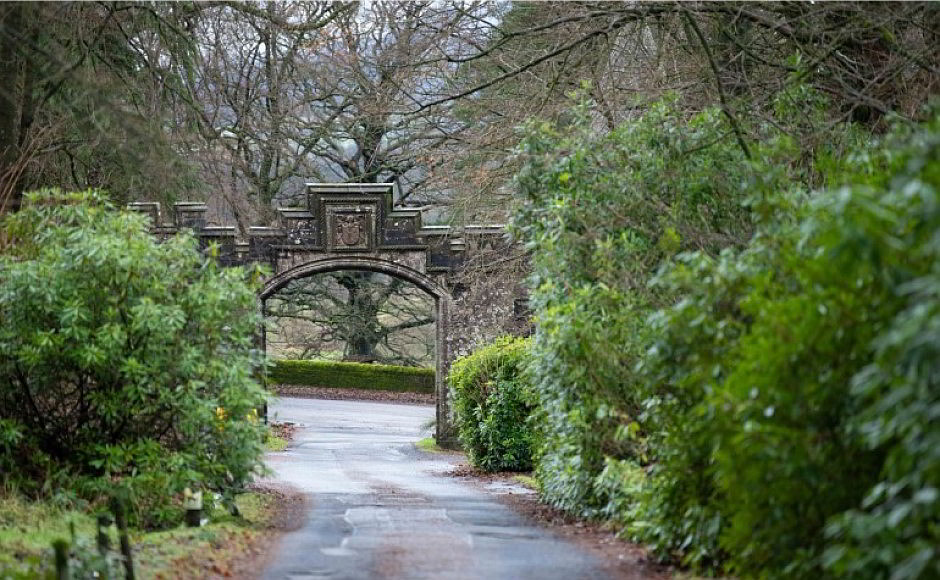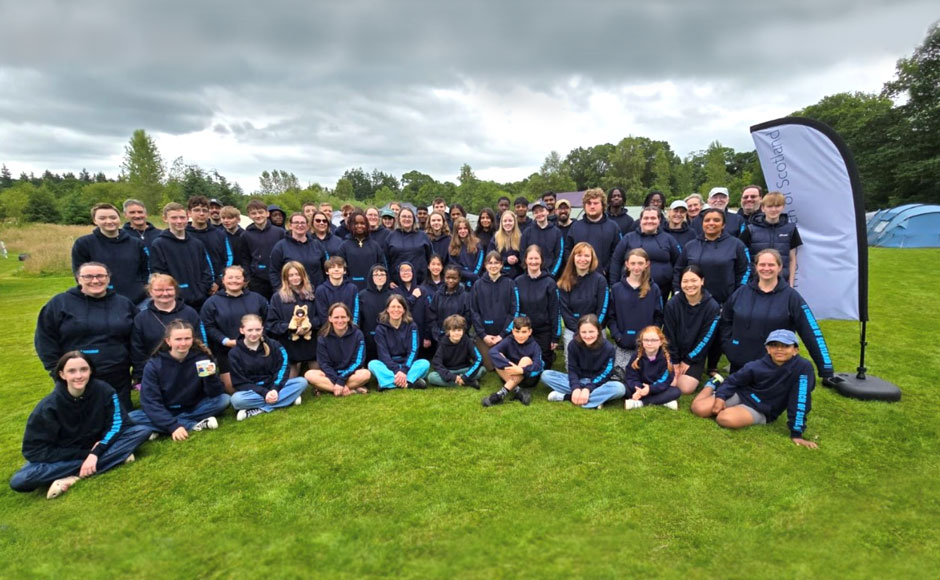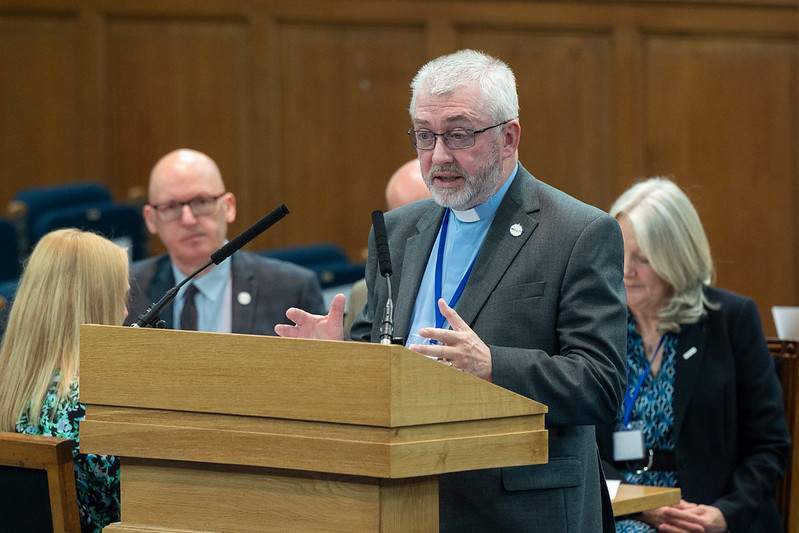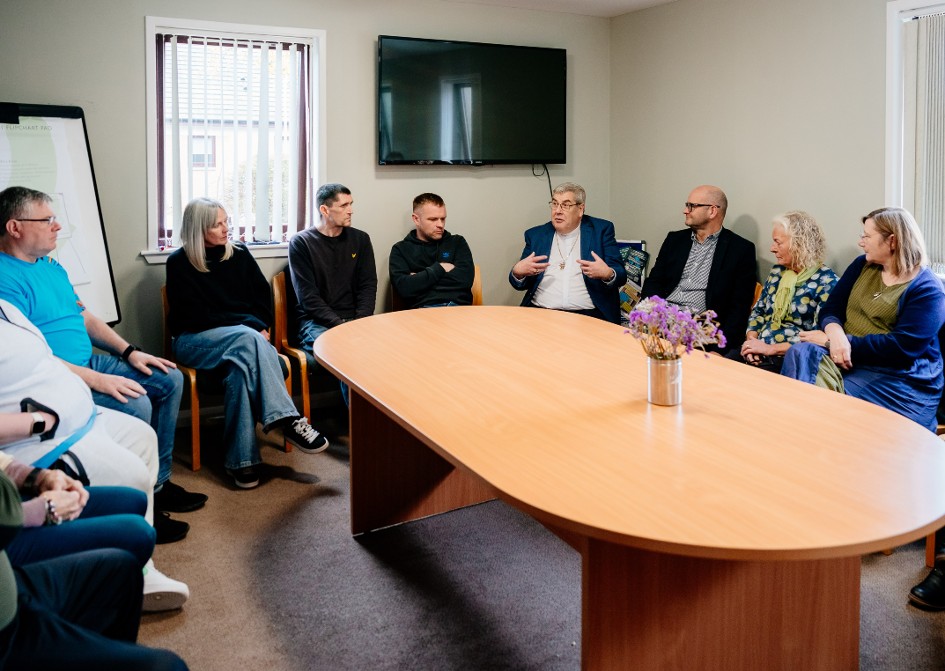CrossReach completes move to family-style homes for looked after children
Published on 3 May 2021
CrossReach, the Church of Scotland's social care arm, closed Ballikinrain residential school this year. It was the final step in their journey towards moving all the children in their care into family-style homes. Paul Gilroy, Head of Service for Crossreach's Children and Families programmes, shares his thoughts about that journey.

Paul Gilroy writes:
"When Ballikinrain, our residential school north of Glasgow, closed its doors for the final time earlier this year, in one way it felt like the end of the era – but at the same time it was incredibly liberating. The move marked an important new stage in the way CrossReach's care for young people had been evolving for well over a decade, from the large residential schools that we'd been begun operating at the end of the last world war to family-style living in local communities.
"Quite literally, we've walked beyond the estate – a bit remote and set apart – into local towns and villages, where our young people are able to connect more immediately with the world around them.
"We no longer have large groups of children and young people living together in imposing buildings with extensive grounds; rather, two to five children live in each of our houses that look and feel a good deal more like ordinary family homes. In fact, one of our tasks is to remind local authorities that we're still here even though the big institutions have been closed.
"More important still, we need to be clear that while we may "look" different, it's the same ethos, the same value base, informing our work that has driven CrossReach's evolving strategy since our first small house opened in Gargunnock back in 2007."
Healing through relationships
"Our ethos is built on a relational model. Like many others in our field, we believe in the maxim that 'children who have been harmed through relationships can be healed through relationships'. It's a way of being that we worked on at Ballikinrain with the help of Dr Dan Hughes, who developed his Dyadic Developmental Psychotherapy approach in the States.
"It's an approach that encourages connection with children and young people using playfulness, acceptance, curiosity and empathy (P.A.C.E.).
"However, with the best will in the world, it's hard to build homely, therapeutic environments in a castle. It's not that relationships with adults cannot be really strong and formative; often, they are, and more than one member of staff can tell of failing to hold back the tears as they shared with the children that they were moving on.
"Yet, how to build equally important relationships with peers or members of the surrounding community when, as one former pupil said, you have to walk 200 yards just to get to the end of your driveway?
"It took me by surprise to learn that he had felt "isolated" during the time he lived at Ballikinrain Castle. That wasn't a word I'd ever associated with the lively, noisy, on-the-go environment I'd worked in. He told me that the difference it made to him when he moved to Millmuir Farm, one of our smaller houses, was immediate.
"It wasn't just that he found it quieter. He said that Millmuir was 'my home for four years; it made me integrate better.'
A 200-yard walk would now get him to the local shop. And when he began high school, he added, "I was allowed to get the bus every day, there and back. That was me taking the bus myself."
"He vividly described to me the change from the castle environment, living with six boys within a much larger group of staff and young people, to having just one other housemate and someone looking after them. Before, he says, he'd only been interacting with 'the same people in the same situation' as himself, and had felt like he was 'avoided by the public'.
"Now, however, he integrated into the local community with far greater ease. This was even a place where he could invite his friends to after school."
Connecting with society
"In the decades since we began opening our residential schools, we have supported over 5,000 children and young people at CrossReach. But it was precisely the kind of transformative experiences I've just described that inspired us in 2014 to begin the final move towards delivering care and support entirely in local communities, alongside a new school campus in Erskine.
"At a time when society's values often seem to weight towards desiring "bigger and more", we've confirmed that what benefits our young people best is "local and less". Family-style living enables them to experience love and nurture in a more homely context, and build relationships with their carers that have the potential to be sustained in a mature way after they'd moved on to the next stages of lives.
"More than that, by bringing young people in CrossReach's care close to local communities, in more intimate settings, we are helping them connect more effectively with society and the world at large. Going "local and less" helps build their resilience.
Challenged to do better
"It's been a long journey to get to this point, but one that has run in parallel with Scotland's evolving legislation and aspirations. Back in 1992, Angus Skinner's report, Another Kind of Home, highlighted that for some children 'residential care should be considered a positive option'.
"Subsequent reports, while challenging, have also supported us in what we were trying to do. We Can and Must Do Better [2007], Higher Aspirations, Brighter Futures [2009], through to the findings of the Independent Care Review – The Promise [2020], coupled with GIRFEC, A Curriculum for Excellence, The Children and Young People (Scotland) Act [2014] and, most recently, the Scottish Parliament's unanimous support for the United Nations Convention on the Rights of the Child (Incorporation) (Scotland) Bill – have all challenged us to think, do and behave differently.
"In particular, The Promise states: 'There must be no barriers for children to have regular, positive childhood experiences and Scotland must create an approach to care where maintaining, sustaining and protecting loving relationships is possible and much more probable'.
The best place to grow up
"For the children and young people and adults who have made that final step from Ballikinrain, the impact in just a few short months has been incredible. Young people are going to the local park and making new friends, neighbours arrive with home baking to welcome us, and one social worker described the atmosphere in one house as ‘much more nurturing'. They added, ‘J is more relaxed and happy'.
Positive, healthy and caring relationships have always been at the heart of what CrossReach does. Sometimes these relationships are with the place, sometimes with the people we have met and knew, but for most of us, former pupils and staff members alike, it will be a mixture of both. So we're certainly feeling some nostalgia around saying goodbye to Ballikinrain. Its grand entrance, elaborately carved staircases, and huge play spaces all contributed to the school's unique character.
But if we are aspiring (as the Scottish Government is) for Scotland to be 'the best place for children and young people to grow up', then isn't it important for them to be living within Scotland's diverse and vibrant communities and not set apart from them – 200 yards beyond an estate wall?"
Paul Gilroy is Head of Service, Children and Families, at CrossReach


